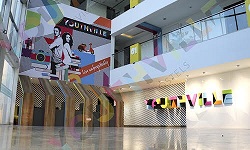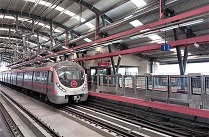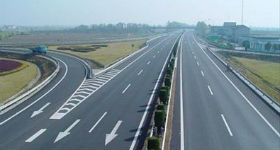 Youthville is transforming the Pune hostel category with its state of the art property at Bavdhan by giving, a living experience that is unforgettable These well crafted living spaces for students, offers facilities to enrich student’s stay in Pune. High speed 24 hours Wi-Fi, Laundromat, Fitness centre, Cafeteria, Music room, Library, Mini theatre, Common kitchenette, Smart access card, Shuttle service, Doctor on call, ,Housekeeping and daily room care, Bike on hire are few of the facilities that has set this property apart from other hostels in the city.
Youthville is transforming the Pune hostel category with its state of the art property at Bavdhan by giving, a living experience that is unforgettable These well crafted living spaces for students, offers facilities to enrich student’s stay in Pune. High speed 24 hours Wi-Fi, Laundromat, Fitness centre, Cafeteria, Music room, Library, Mini theatre, Common kitchenette, Smart access card, Shuttle service, Doctor on call, ,Housekeeping and daily room care, Bike on hire are few of the facilities that has set this property apart from other hostels in the city.
The hostel is strategically located at Bavdhan, which has close proximity to various education institutes and important destinations. After the launch of girls hostel in Bavdhan, Youthville has plans to expand to Mukund Nagar, Thathawade and Nagpur. Refining the hostel experience, where students lives unforgettably, the company has vision to deliver 25,000 beds by 2023-2024.
Rooms range from double and triple occupancy. The 4 storied property has 126 beds .En-suite shared rooms with upscale trendy interiors has private balconies. At Youthville there is no dearth of facilities. A student is looked after very well and the time spent over here is unforgettable. Equipped with state –of- the- art amenities living Youthville offers convenience, security and comfort for the students that is trusted by students, parents, and institutions across Pune. Food at Youthville is wholesome and nutritious. The menu is different everyday with variety of dishes to cater to everyone’s taste.
 Mr. Vineet Goyal, Founder Youthville Hostel says “At present student housing is functioning in an unorganized way. Unfortunately students face issues related to hygiene, food and other necessities. They are deprived of facilities which are making their lives difficult. At Youthville we have addressed to these inadequacies and created a space, where students live unforgettably. The demand is huge and put together all the colleges in Pune are able to meet only 10 %– 15 % of demand. In short student housing is undersupplied and has high potential to grow in demand. With organized players coming in, it will help to cater to this growing demand. With high potential and sustained occupancy rates, this segment has immense of scope to be developed as an asset class for the realty developers.”
Mr. Vineet Goyal, Founder Youthville Hostel says “At present student housing is functioning in an unorganized way. Unfortunately students face issues related to hygiene, food and other necessities. They are deprived of facilities which are making their lives difficult. At Youthville we have addressed to these inadequacies and created a space, where students live unforgettably. The demand is huge and put together all the colleges in Pune are able to meet only 10 %– 15 % of demand. In short student housing is undersupplied and has high potential to grow in demand. With organized players coming in, it will help to cater to this growing demand. With high potential and sustained occupancy rates, this segment has immense of scope to be developed as an asset class for the realty developers.”



